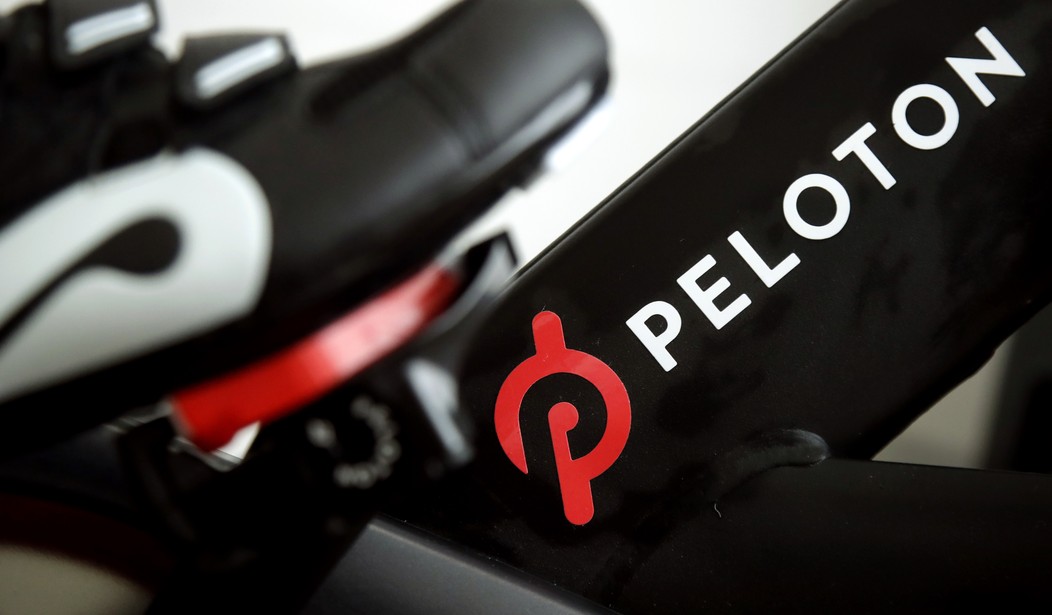On Wednesday, PJ Media reported that the at-home fitness company Peloton was blocking users from using the hashtag #LetsGoBrandon.
The story quickly spread and was reported on by Fox Business, the Daily Mail, Breitbart, The Daily Wire, and the New York Post.
Even Rep. Lauren Boebert caught wind of the story.
Peloton has blocked anyone from putting “Let’s Go Brandon” in their usernames as they work out.
YouTube hides ALL dislikes as almost every Biden video has more dislikes than likes.
Sorry, America hates the guy and you can’t cover it up!
— Lauren Boebert (@laurenboebert) November 11, 2021
I contacted Peloton’s press office a few days prior to publishing my story with the hopes of getting an explanation. What was wrong with the #LetsGoBrandon hashtag?
“Hateful , offensive, or obscene speech is strictly forbidden on the Peloton Service,” according to the company’s guidelines. “This includes any leaderboard names, locations, profile pictures, Tags or any other User Content that promotes, relates to, or condones lack of respect, discrimination, or violence of any kind against individuals or groups based on age, ethnicity/culture, race, nationality, immigration status, disability status, physical ability, gender or gender identity/expression, sexual orientation, religion, veteran status, body shape, socio-economic status, or political affiliation.”
Is #LetsGoBrandon hateful or offensive? I don’t think so. While it has become synonymous with “F**k Joe Biden!” the phrase itself is not vulgar or obscene. In fact, it’s become a pop culture phenomenon since an NBC reporter pretended that she “misheard” chants of “F**k Joe Biden!” at the NASCAR Xfinity Series race at Talladega as “Let’s go, Brandon!” The phrase went from a viral social media meme to a chart-topping song on iTunes. It’s on shirts, bumper stickers, and face masks and has made its way into the House chamber.
While Peloton has yet to respond to PJMedia’s request for comment, they did issue a statement to the Washington Examiner, which also picked up our story.
“We welcome Members from all walks of life to represent themselves through their Tags or by having thoughtful conversations in our groups,” Peloton told the Washington Examiner. “However, we have a zero tolerance policy against divisive, explicit, or other content that violates our policies. We actively moderate our channels and have removed Tags that span the political spectrum, while still allowing Members to express themselves using Tags like #WomenForTrump.”
It is true, as I pointed out in the original story, but the issue here is what constitutes “divisive”?
Profane tags seem to be more objectively banned. Both #TrumpSucks and #BidenSucks are banned.
But the hashtags #TrumpWon and #StopTheSteal are banned, while #BidenWon and #TrumpLostGetOverIt are not. There are variants of these tags that seem to have been missed by Peloton’s moderators.
But perhaps the most significant example of how Peloton’s zero-tolerance policy against “divisive” content seems disproportionately applied is that the platform allows the #BlackLivesMatter tag, while #AllLivesMatter has been banned. #DefundThePolice is also permitted.
According to @onepeloton #BlackLivesMatter is okay, but #AllLivesMatter is a violation of their guidelines. pic.twitter.com/JZ0YGM36PZ
— Margolis & Cox Editorial Cartoons (@MargolisandCox) November 12, 2021
What makes #BlackLivesMatter okay but #AllLivesMatter divisive? Who at Peloton made that call? Many believe #BlackLivesMatter is racist, yet Peloton, which fancies itself to be an anti-racist company, allows it on their platform, while the more inclusive #AllLivesMatter is banned.
Peloton’s moderation of vulgar tags is certainly justifiable, and they have the right to moderate as they see fit, but using subjective standards to determine what is “divisive” opens the company up to accusations of bias, potentially alienating members—which is exactly what Peloton has done by banning #LetsGoBrandon.










